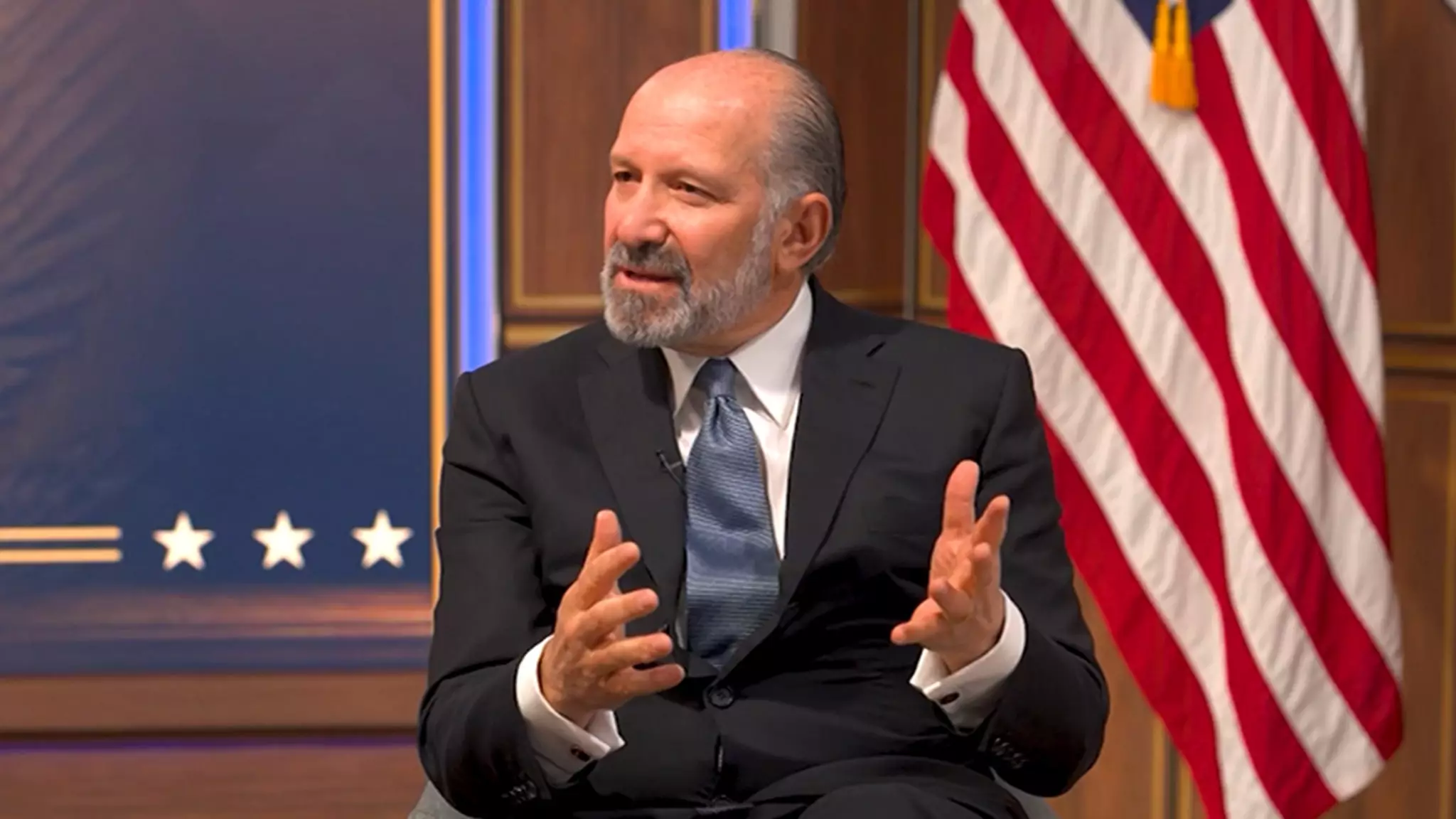In a stunning display of tone-deafness, Commerce Secretary Howard Lutnick recently made headlines with his bewildering statements regarding Social Security checks. His comments reflect an alarming disconnect from the realities faced by millions of Americans who rely on these payments for their very survival. When Lutnick boldly suggested that his 94-year-old mother-in-law, well-heeled in affluence, could simply wait for her monthly check, he not only trivialized the struggles of those living paycheck to paycheck but also fostered an environment of intimidation against them.
It’s incredibly disheartening to witness a leader in government position an inherent privilege as a guideline for determining the worthiness of social welfare recipients. For those like Lutnick’s mother-in-law, financial security is not a concern; for many others, missing a single check can lead to dire consequences, including hunger and even health deterioration. The blithe judgment of Lutnick underscores a culture that so often neglects the common good in favor of maintaining a facade of order and control—too often at the expense of the needy.
The Danger of Criminalizing Vulnerability
It is particularly concerning when Lutnick refers to those who voice concerns about missing payments as mere fraudsters. In doing so, he inadvertently encourages a climate of fear, where individuals may refrain from voicing their issues due to the dread of being labeled a criminal. The implication that any struggle for assistance equates to dishonesty is dangerously misleading. It creates barriers that prevent people from seeking the help they desperately need.
Moreover, Lutnick’s advocacy for withholding payments to pinpoint these “criminals” is nothing short of negligent. Such a plan disregards the fact that many of these so-called criminals are actually hard-working individuals who, due to circumstances beyond their control, find themselves in a tough spot. This character assassination of the vulnerable is not only unjust but also alienates those who might be facing tragic realities, such as missing meals or crucial medications.
A Deteriorating Safety Net
Unfortunately, Lutnick’s rhetoric aligns eerily well with actions taken by the Trump administration to dismantle Social Security infrastructures across the nation. The strategy of closing offices and forcing people to appear in person exacerbates an already challenging situation. For many aging or disabled individuals, physically traveling to an office can be an insurmountable challenge, not to mention the potential health risks involved.
The suggestion that these individuals should no longer rely on phones for assistance strips away a crucial lifeline. The compounded burden this places on those already drowning in uncertainty is unconscionable. The everyday lives of recipients are not bureaucratic chess games; they are filled with genuine fears and serious responsibilities.
Lutnick’s comments serve as a glaring reminder that privilege can breed a profound misunderstanding of the struggles faced by others. It calls into question the moral compass by which our leaders operate at a time when empathy and support should be the paramount concerns of any governing body. With the stakes so high for so many, the community needs advocates who not only recognize but also fight for the dignity and support of all citizens, regardless of their financial standing.

Leave a Reply